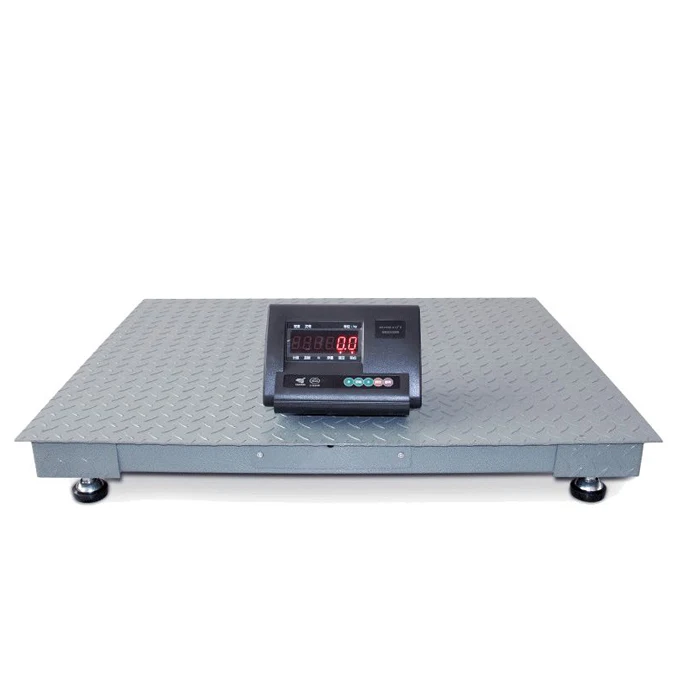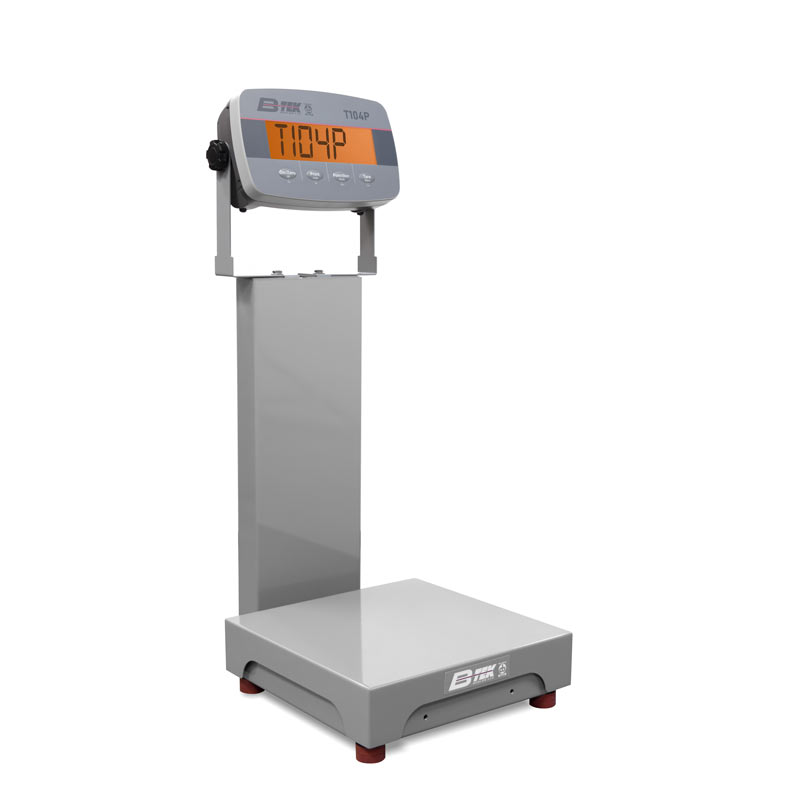Improve Workflow Accuracy with Trusted Industrial Scales Options
Improve Workflow Accuracy with Trusted Industrial Scales Options
Blog Article
How Industrial Scales Improve Precision in Production and Logistics
Industrial ranges are indispensable to the accuracy needed in production and logistics, as they directly influence the accuracy of weight dimensions essential for efficient manufacturing and inventory techniques. Industrial Scales. By guaranteeing that products are weighed accurately, organizations can minimize mistakes that might lead to significant monetary consequences. Additionally, the arrival of advanced technologies in evaluating systems is transforming standard procedures. Recognizing the full extent of these developments and their ramifications for future operations invites a better examination of how progressing methods can redefine accuracy criteria in the industry.
Importance of Precision in Workflow
In the realm of manufacturing and logistics, accuracy is the foundation of operational effectiveness. Exact measurements are important for keeping quality assurance, optimizing source appropriation, and guaranteeing conformity with market criteria. When operations count on specific data, organizations can reduce waste, boost production timelines, and boost general performance.
The importance of accuracy expands past simple dimension; it also affects decision-making processes. For circumstances, exact weight readings can identify ideal supply degrees, improve supply chain logistics, and help with precise invoicing. Furthermore, inaccuracies in measurements can lead to pricey mistakes, such as overflow or underestimating material needs, which can jeopardize project timelines and success.
By implementing strenuous dimension standards, organizations can recognize inefficiencies and establish renovations, ultimately leading to boosted consumer complete satisfaction. Hence, spending in precision measurement tools, such as industrial scales, is not simply a technical consideration yet a tactical essential for success in the production and logistics fields.
Sorts Of Industrial Scales
Numerous types of industrial ranges play a vital role in attaining the accuracy needed for reliable manufacturing and logistics procedures. Each type is created to satisfy details demands, making sure precise dimension of components, items, and products.
One usual type is the system scale, which provides a flat surface for evaluating bulk materials or large items. These ranges are typically made use of in storehouses and shipping centers. One more type is the bench range, generally smaller and utilized for considering individual packages or smaller sized batches of items. These scales are crucial in top quality control processes. Industrial Scales.
For applications where precision is important, analytical balances are used. These high-accuracy scales are made use of in research laboratories and study settings to measure small quantities with utmost precision. Flooring ranges, created for sturdy considering, are optimal for considering large pallets or containers, frequently incorporated with forklifts for efficiency.
On top of that, load cells are utilized in numerous applications for real-time weight dimension and information collection. Each of these scales adds uniquely to the functional effectiveness, ensuring that companies can maintain precision throughout their production and logistics processes. Comprehending the kinds of industrial ranges is essential for enhancing performance and attaining operational quality.

Effect On Stock Management
Exact evaluating is crucial for reliable supply management, as it directly influences stock precision and operational performance. In manufacturing and logistics, exact measurement of products and items ensures that inventory documents mirror real see stock degrees, decreasing disparities that can cause overstocking or stockouts. Industrial scales supply the essential precision to consider items precisely, allowing organizations to maintain a reliable stock system.
Moreover, precise weighing adds to far better forecasting and planning. With specific information on supply degrees, companies can make educated choices concerning procurement and manufacturing routines. This decreases the risk of excess stock, which can link up resources and rise storage prices, in addition to avoid shortages that might interrupt operations.
Moreover, the combination of industrial scales with stock monitoring systems assists in real-time monitoring of stock movements. This enhances the procedure of upgrading supply records, boosting transparency and liability throughout the supply chain. Inevitably, precise weighing not only supports efficient stock monitoring however also drives general operational effectiveness, making it possible for services to respond promptly to market needs and keep an affordable side in their particular markets.
Enhancing Quality Assurance
Effective stock monitoring not just makes sure ideal stock levels yet additionally lays the foundation for durable quality assurance processes. Industrial ranges play a crucial role in enhancing high quality control by giving exact weight measurements that are vital for keeping product honesty. Regular weight verification enables makers to stick to requirements, guaranteeing that each thing meets the required top quality standards.
In high-stakes atmospheres, such as food production or pharmaceuticals, even minor weight discrepancies can bring about significant conformity issues. By incorporating industrial scales right into the manufacturing line, companies can keep track of item weights in actual time, permitting for instant restorative actions if irregularities are found. This proactive approach decreases waste and enhances general item reliability.
Furthermore, precise evaluating facilitates better solution of raw products, which is important in sectors such as chemicals and cosmetics. By guaranteeing that active ingredient proportions remain constant, suppliers can attain superior product try this quality, improving customer satisfaction and reducing returns.
Future Patterns in Weighing Technology
The future of considering innovation is positioned for significant developments driven by automation, connectivity, and data analytics. As sectors develop, the combination of sophisticated sensors and IoT (Web of Points) capacities will certainly enable real-time tracking and reporting of weight data. This connection will certainly not just improve functional effectiveness yet likewise promote predictive maintenance, decreasing downtime and boosting productivity.
Furthermore, the unification of artificial intelligence and artificial intelligence algorithms right into weighing systems will boost information evaluation abilities. These modern technologies can identify patterns and anomalies, permitting for even more educated decision-making and maximized supply chain monitoring. The rise of cloud-based remedies will certainly allow seamless information sharing throughout platforms, guaranteeing that stakeholders have accessibility to updated details at all times.
Sustainability will certainly additionally play an important role in future weighing modern technology. As organizations aim to lessen their carbon footprint, weighing systems that integrate energy-efficient styles and materials will end up being significantly crucial. click for info Furthermore, advancements in digital weighing scales will certainly sustain better resource management by offering accurate measurements that reduce waste.
Final Thought
Finally, commercial ranges substantially enhance precision in production and logistics by providing exact weight dimensions necessary for effective procedures. Their role in inventory management, quality assurance, and combination with innovative technologies highlights their significance in minimizing disparities and maximizing resource allocation. As sectors remain to progress, the fostering of innovative weighing services will even more support functional effectiveness and reduce waste, ultimately contributing to improved productivity and competition in the market.
One typical type is the platform scale, which offers a level surface for weighing bulk products or large items. One more kind is the bench range, typically smaller and used for weighing private packages or smaller sized sets of products. Floor scales, developed for sturdy weighing, are suitable for evaluating huge pallets or containers, commonly incorporated with forklifts for efficiency.
Industrial ranges provide the needed accuracy to evaluate products properly, allowing organizations to preserve a dependable supply system.

Report this page